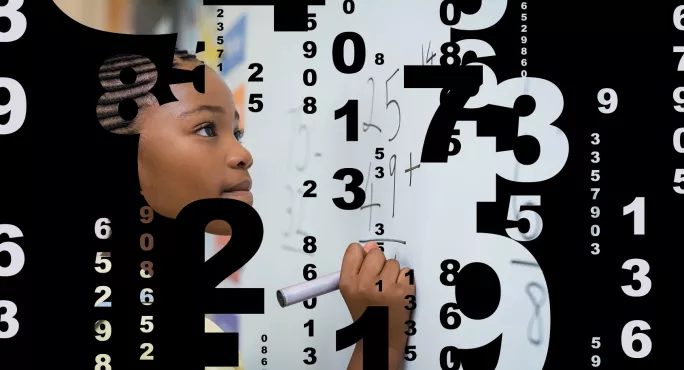Major national curriculum reviews are rare. As a result, commissioning such a process should be undertaken with a large dose of care and consideration, as was seen in England last year.
Such reviews are also opportunities to think big and bold: to consider which national totems should remain sacred, and those which need to be overhauled. I should know: I have watched and been closely involved in Finlandâs overhauls during the last three decades.
It is, therefore, particularly interesting for me to watch the debate in the UK about how education systems ensure numeracy for all post-16 pathways.
Maths education debates
The questions of how much maths we want all young people to study, what kind of maths they must master and when we want them to master it ought to also be at the very centre of international debates about education right now, too.
The rise of both mobile technology - we all now carry an extraordinarily high-powered calculator at all times - and, more recently, the easy access to artificial intelligence (AI) for complex problem solving brings with it many unanswered questions.
First, I want to make one thing clear: these shifts mean young people need to be more numerate - not less. They must understand numbers, patterns and statistics to navigate this new world. What is often overlooked in our increasingly fragmented world is that maths, at its core, is a subject about relationships.
There are lessons here from the International Baccalaureateâs (IB) experiences. First, we ensure that all pupils in the IB Diploma Programme engage with maths until age 18.
We have thought hard about what that maths looks like. Itâs not the same course material for everyone, but numeracy is essential. We are clear that not all approaches to mathematical learning - or indeed course content - are for everyone.
At the 16-18 age level, the IB reflects these tensions through two different maths courses.
Approaches to maths
One option, âApplications and Interpretationsâ, focuses on the application of concepts to real-world scenarios for those who will not go on to further study in science or traditional mathematics. It retains its rigour by focusing on the way mathematics is used in statistics, modelling and other everyday usage.
It is a course that focuses on using mathematics practically rather than in the abstract. This aligns closely with the IBâs overarching commitment to understanding the world through both creative and critical thinking.
In the broadest sense, this is the kind of maths that we think all young people will encounter in their lives and need to engage with to be an informed citizen.
The other option, âAnalysis and Approachesâ, is the course that would be more familiar to those who are used to what advanced maths is taught in a lot of mainstream schooling. This, of course, is highly valuable for students pursuing science, technology, engineering or maths subjects at university, for example. But does everyone need to experience these topics? Probably not.
Both courses can be taken at a standard or a higher level and we emphasise that it is the approach to maths that is different, not that one course is easier than the other.
More maths, not less
The key issue here is that everyone who does the IB Diploma Programme engages with maths. They must all be numerate in a way that will set them on a strong, dynamic course for life in a challenging new world of near-permanent technological revolution.
Our approach is not perfect - no curriculum ever is. Thatâs why the IB continuously reviews its programmes, drawing on teachersâ experiences and the broader educational ecosystem.
But one thing is clear: the world will need more mathematical thinking, not less. Just, perhaps, not the maths you and I studied at school.
Olli-Pekka Heinonen is the director-general of the International Baccalaureate
For essential weekly intelligence on the international schools sector, sign up for the





